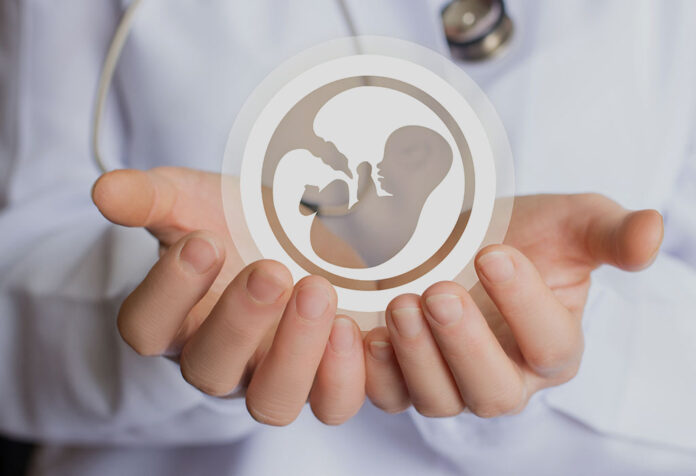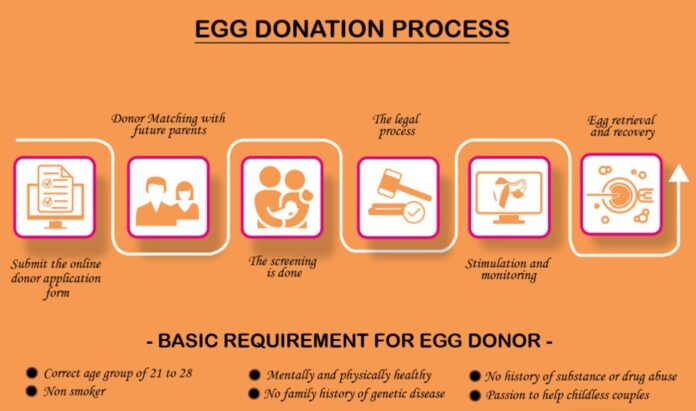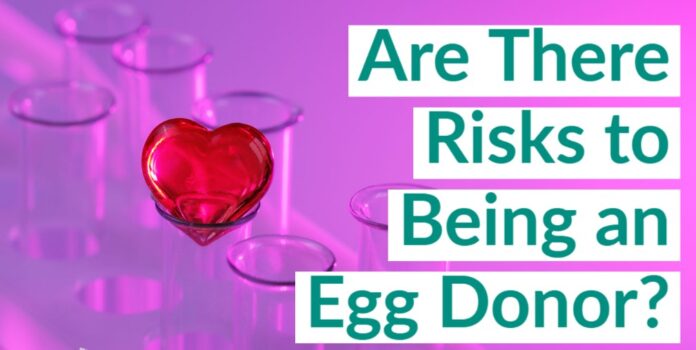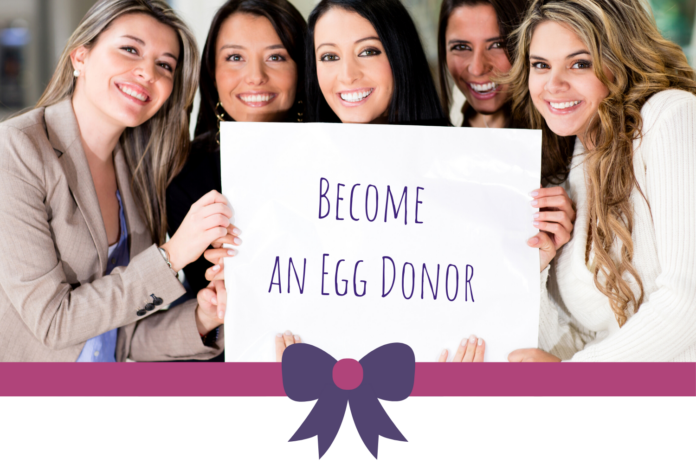If you’re looking for egg donors, you’re not alone. Many couples and individuals struggling with fertility turn to egg donation as a way to have a baby. And while it can be a challenging process to find the right candidate, there are many resources available to help you through the process. In this blog post, we’ll explore how to find egg donors, including where to look and what to consider when making your selection. We’ll also provide some tips on what to expect during the egg donation process.
Why You May Need an Egg Donor

If you’re considering using an egg (ovum) donor to help you conceive, you’re not alone. According to the fertility website Resolve, as many as 1 in 8 couples in the United States struggle with infertility.
There are many reasons why someone may need to use a donor. One common reason is age. As women get older, their eggs become less viable and they have a more difficult time conceiving.
Another reason is if they have a genetic disorder that could be passed on to their child. By using a giver’s eggs, they can avoid passing on the disorder.
Lastly, some couples simply cannot conceive with their own ovum no matter how much they try. In these cases, using a donor may be the only way to have a biological child.
If you think you may need a donor, speak with your doctor or a fertility specialist. They can help you determine if this is the right option for you and help you find a reputable egg donor agency like https://ovogenebank.com/find-your-perfect-donor/.
How to Find a Person that is willing to donate?
There are a few different ways to go about finding an ovum donor, and the best method for you will depend on your personal circumstances.
One way to find it is to use a fertility clinic. Many clinics have a database of potential candidates, and they can help match you with a candidate who meets your specific criteria. Another option is to search online. There are a number of websites that allow you to search for candidates by location, race, or other factors.
If you have friends or family members who have had success conceiving with the help of an ovum donor, you may want to ask them for recommendations. Finally, you can also contact a professional egg donation agency. These agencies can help you find a reputable donor and provide support throughout the process.
The process of ovum donation

There are many ways to find an egg donor, but the process generally follows these steps:
- The intended parents consult with a fertility specialist to discuss their options and decide if the donation is right for them.
- If they choose to move forward with the process, the fertility clinic will help them select a donor from their database of willing donors.
- Once a giver is selected, she will undergo medical and psychological screening to ensure she is healthy and psychologically fit to donate her ovum.
- Once the person is cleared for donation, she will begin taking injectable medications to stimulate her ovaries to produce multiple eggs.
- The eggs are then retrieved through a minor surgical procedure called ovarian stimulation retrieval (OSR).
- The retrieved ova are fertilized with sperm from the intended father or a sperm giver, and the resulting embryos are cultured in the laboratory until they reach the blastocyst stage.
- One or two of the best-quality embryos are then transferred into the uterus of the intended mother, where hopefully they will implant and grow into healthy babies!
Pros and Cons of Using a Donor
Some of the pros include:
- You have a much higher chance of getting pregnant than with traditional methods such as IVF.
- You can choose a donor who shares your physical characteristics, which can increase the chances that your child will look like you.
- You can have peace of mind knowing that the egg donor has been thoroughly screened for genetic diseases and is healthy.
Some of the cons of using an egg donor include:
- The cost can be high, depending on the clinic you use and other factors such as whether or not you need to pay for legal fees and travel expenses.
- You may feel like you’re not really carrying your baby if you use someone else’s eggs. This is a personal issue and different women feel differently about it. Some couples who use donor eggs say they feel just as connected to their child as if they had used their own eggs.
- You may have to deal with some emotional issues related to infertility. It can be difficult to come to terms with the fact that you’re not able to conceive a child naturally. seeking professional counseling may help you work through these emotions.
Risks and complications of egg donation

There are some risks associated with egg donation, but they are generally minor. The most common complication is ovarian hyperstimulation syndrome (OHSS), which can cause abdominal pain, nausea, vomiting, and shortness of breath. OHSS is usually mild and can be treated with over-the-counter medication, but in rare cases, it can be severe and require hospitalization. Other risks include infection, bleeding, and damage to the reproductive organs.
Egg givers are also at risk for developing psychological problems such as depression, anxiety, and guilt. It is important to speak with a mental health professional before making the decision to donate eggs to make sure that you are emotionally prepared for the process.
Conclusion
If you’re considering becoming an egg donor, there are a few things you should keep in mind. First, make sure that you are comfortable with the process and understand all of the risks involved. Second, find a reputable agency or fertility clinic that you feel comfortable working with. And finally, be honest with yourself and potential donors about your reasons for wanting to donate eggs. By following these simple tips, you can be sure that you’ll find the perfect egg donor for your needs.









